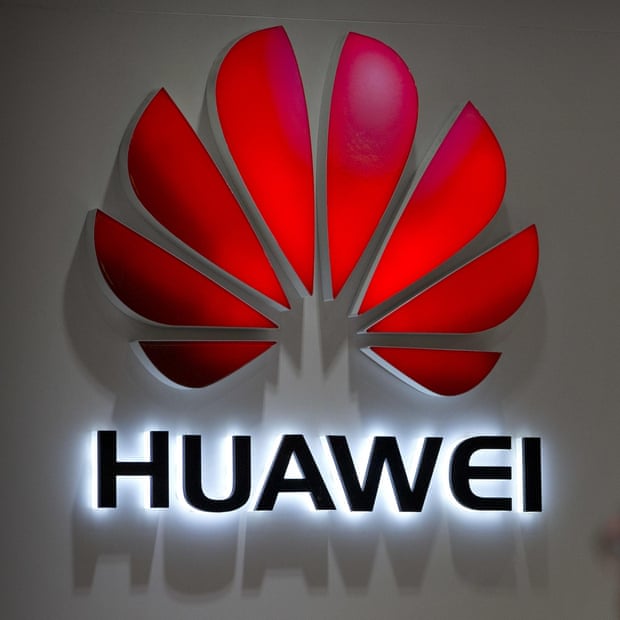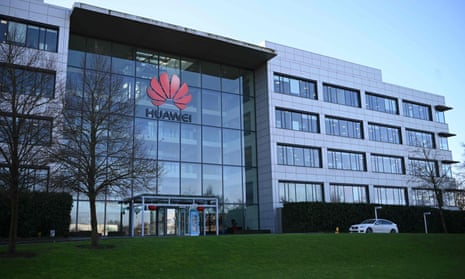Clearing Huawei for use in Britain’s 5G networks will come as a blow to the company’s competitors, particularly Ericsson and Nokia, the two Nordic infrastructure providers who stood to benefit most from filling in the gaps left in provision.
Currently, the three companies are the only players capable of providing all the hardware needed to roll out Britain’s 5G network, according to Andrew Stark, a director at cybersecurity business Red Mosquito.
Q&AWhat is Huawei and why is its role in 5G so controversial?
Show

Fast-growing Huawei is arguably China’s first global multinational. The Shenzhen-based company makes mobile phones, base stations and the intelligent routers that facilitate communications around the world.
But its success increasingly concerns the US, which argues Huawei is ultimately beholden to the Chinese Communist party and has the capability to engage in covert surveillance where its equipment is used.
Huawei is by some distance the world’s largest supplier of telecoms equipment with an estimated 28% market share in 2019. It was also the second largest phone maker in 2019, after Samsung and ahead of Apple.
But Australia banned Huawei from 5G in 2018, with its spy agencies declaring they were worried the company could shut down power networks and other parts of its infrastructure in a diplomatic crisis.
Trump banned US companies from working with Huawei last year and has strenuously lobbied others to follow suit, venting “apoplectic fury” in a phone call to Boris Johnson after the UK agreed to allow the Chinese company into 5G.
The company had successfully targeted the UK early on. It has supplied BT since 2003 and gradually expanded to the point where it agreed to create a special unit in Banbury, known as the Cell, where the spy agency GCHQ could review and monitor its software code. Vodafone is another key customer.
Britain’s intelligence agencies said in January that any Huawei risk could be managed as long as the company was not allowed to have a monopoly. As a result, Boris Johnson concluded Huawei’s market share should be capped at 35% for forthcoming high-speed 5G networks.
In July 2020 the UK position changed, and it was announced that Huawei is to be stripped out of Britain’s 5G phone networks by 2027. Oliver Dowden, the UK culture secretary, also announced that no new Huawei 5G kit can be bought after 31 December 2020 – but said that older 2G, 3G and 4G kit can remain until it is no longer needed.
Dan Sabbagh Defence and security editor
“With Huawei kit already integral to the UK 3G and 4G networks, shifting to 5G with them offers the path of least resistance and increases chances of telecom companies meeting tight roll-out targets. There are currently only two other tech players capable of providing hardware for 5G, namely Nokia and Ericsson.”
What’s more, say analysts Fitch Solutions, “there is a lack of interoperability between equipment vendors, which means it is easier to use Huawei for 5G if it is already used for 4G, at least for early 5G networks … It means that an operator which had used Huawei for 4G, but wants another provider for 5G, will need to replace its existing 4G network. This will be both costly and time-consuming.”
The absence of an American corporation from that list has left the US particularly uneasy about its role. Networking giant Cisco has been working on a form of 5G that uses a technique called network slicing, which could allow for much more flexible networks to be developed in the future, but the hardware isn’t advanced enough to underpin national infrastructure.
Other companies, including South Korea’s Samsung and Japan’s Rakuten, have also built competing 5G implementations, but without a pre-existing footprint in the UK, British carriers have been loth to take a chance on new suppliers while simultaneously launching their largest infrastructural upgrade in decades.
The potential security threat posed by Huawei is ameliorated in part by the unprecedented creation of an oversight board, chaired by the head of the national cybersecurity centre, that has the power to examine the company’s operations in Britain.
But the 2019 report from the clunkily-named Huawei Cyber Security Evaluation Centre Oversight Board was a mixed bag for the company: the board criticised the quality of Huawei’s work, and argued that it could only provide “limited assurance” about security risks in the long term as a result.
While it found no obvious signs of malfeasance, it was instead perturbed by the lack of clear software development practices that, for instance, made it impossible to verify that the code the centre examined was the same as that loaded into sensitive hardware.
The US has publicly argued against the “edge/core” distinction the UK plans on enforcing, whereby Huawei equipment would be kept out of the sensitive work at the core of the network, and relegated to relatively “dumb” roles in towers and on the fibre backbone.
American diplomats have argued that the distinction is moot for 5G, which has much better support for edge computing, where complex work is done at the point of connection to minimise latency. But industry insiders have dismissed the US argument.
“That’s such an old chestnut, they’ve been peddling this for the last 18 months. It’s something they can say for the sake of making an argument, but doesn’t reflect our actual security policies at all,” said one senior staffer of a UK network. In practice, they said, an edge node carrying out sensitive work can easily be treated as core for security purposes,” said one.
For many domestic critics of the company, however, the issue is not security, but broader economic fairness.
Huawei has benefited from substantial state support, both direct and indirect, enabling it to rapidly expand into Asian and African markets, providing it economies of scale that have allowed it to leverage into further advantage in Europe. The result is that the firm is able to provide equipment that is more capable, and cheaper, than that made by its competitors.







